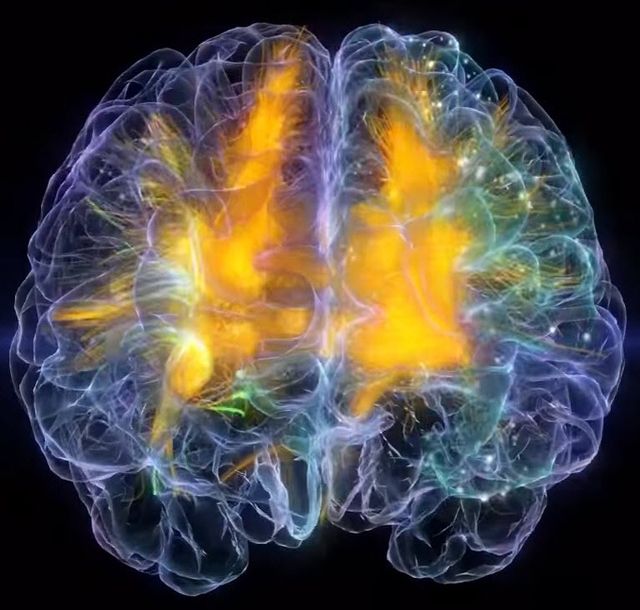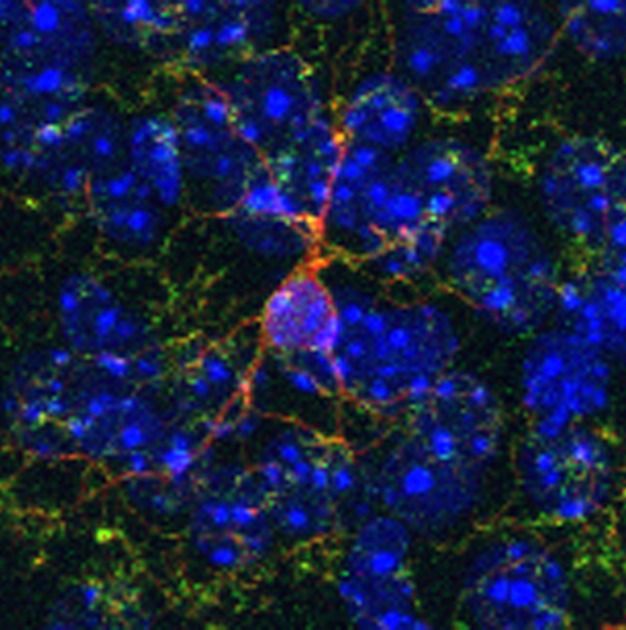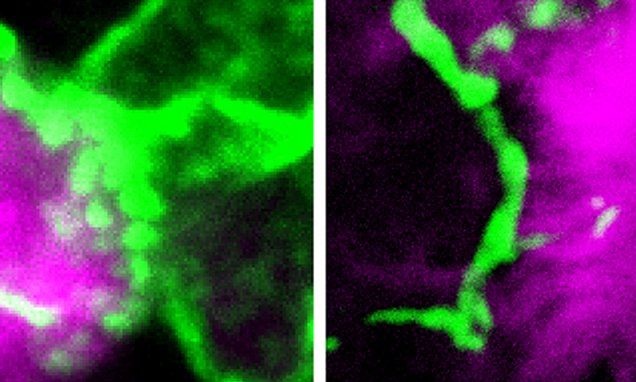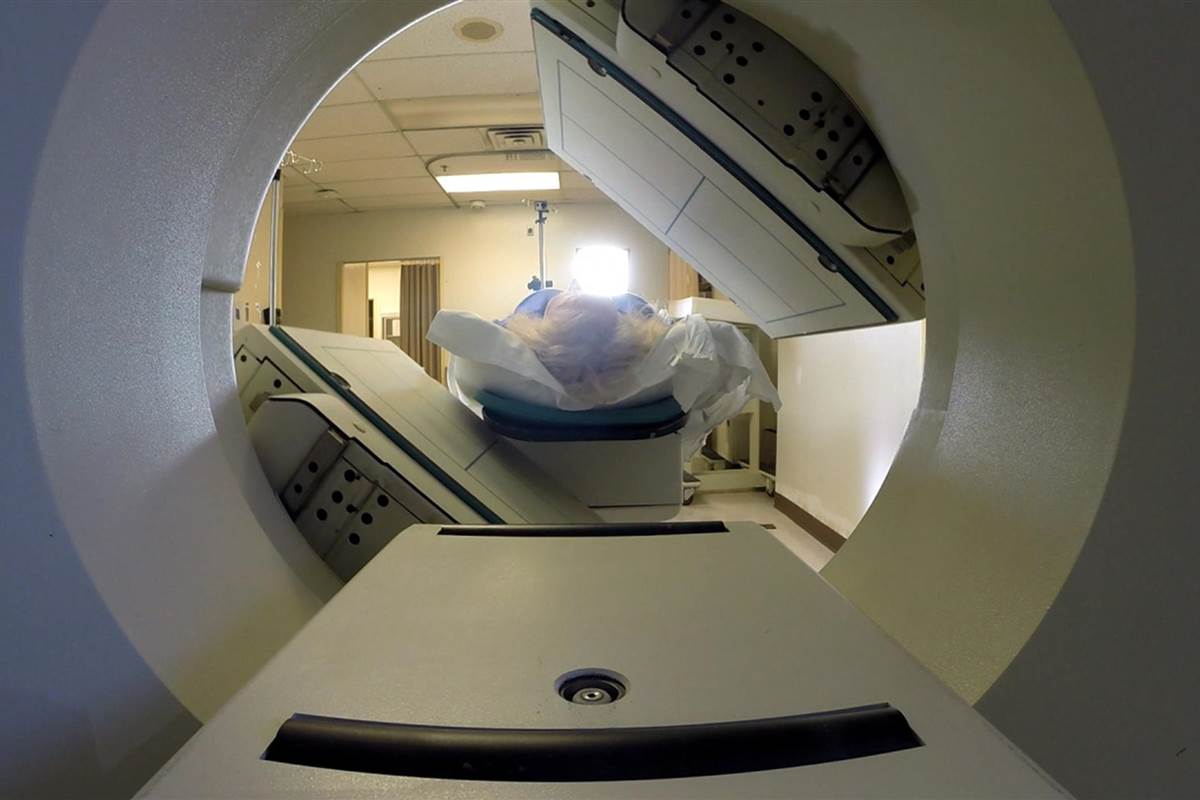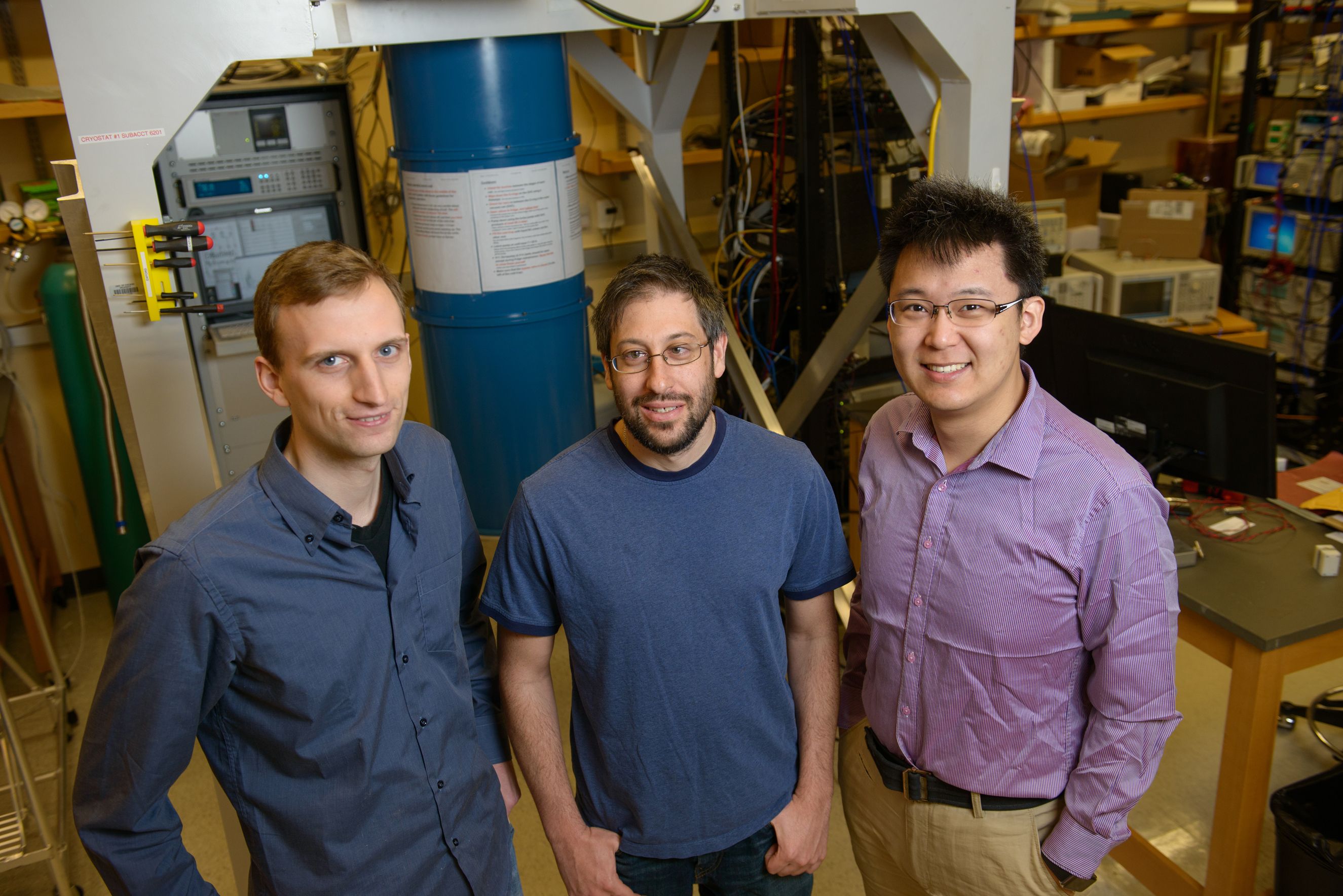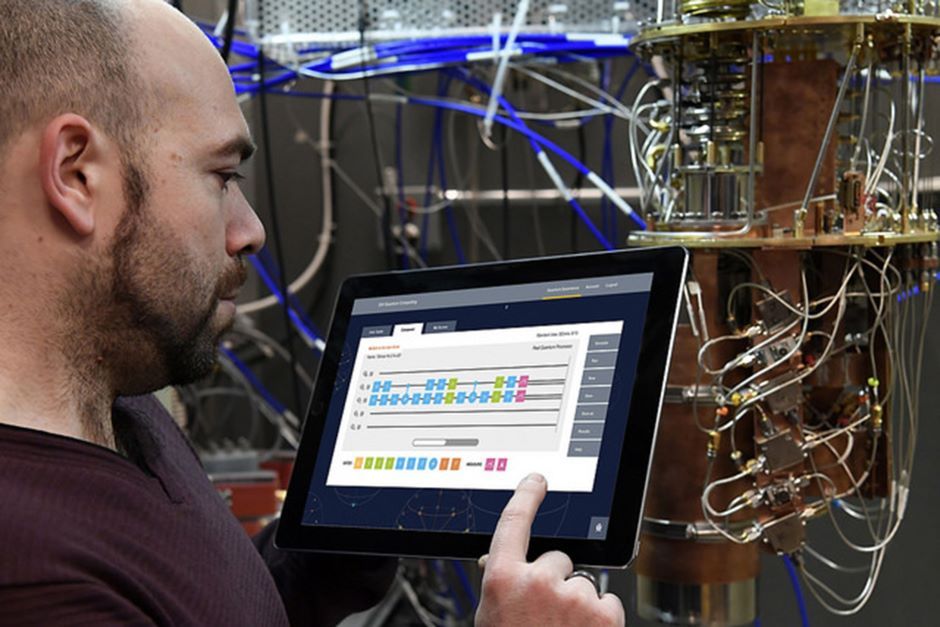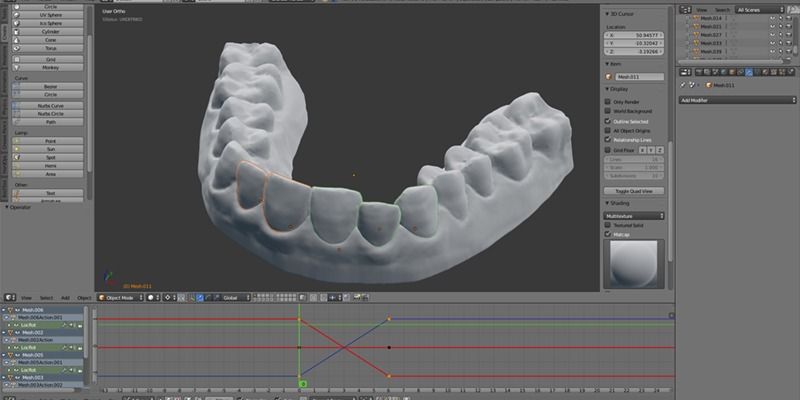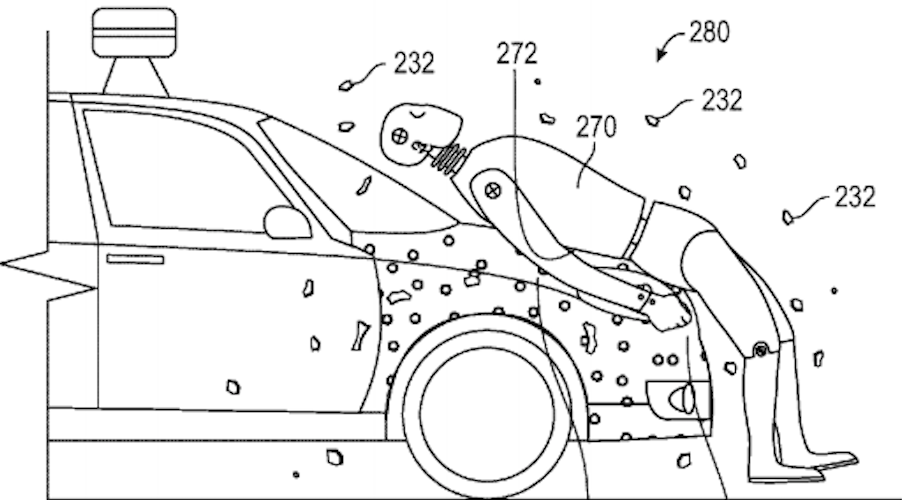Page 11093
May 19, 2016
Mechanism that reduces effect of cocaine on brain discovered
Posted by Karen Hurst in categories: health, neuroscience
Very promising. Wonder how effective it is with Prescription Med. Addictions.
A type of brain cell known as microglia plays a key role in reducing the effects of cocaine in the brain, according to a major study by a team from the Research Institute of the McGill University Health Centre (RI-MUHC) in Montreal.
The discovery, published in the journal Neuron, establishes for the first time that microglia can diminish the adverse changes to neural circuitry brought on by the chronic use of cocaine and has significant implications for developing an effective treatment for addiction.
Continue reading “Mechanism that reduces effect of cocaine on brain discovered” »
May 19, 2016
Immune cells thought to trigger dementia actually PROTECT against it
Posted by Karen Hurst in categories: biotech/medical, neuroscience
A specific type of immune cell, called microglia (green) can help contain amyloid plaques (magenta), the key hallmark of Alzheimer’s disease, thus limiting their damage to surrounding brain cells.
But, Dr Jaime Grutzendler, associate professor of neurology and neuroscience at Yale, said that is no longer thought to be the case, and should signal a new.
He said: ‘It suggests we should be enhancing the function of these immune cells, not trying to suppress it.’
Continue reading “Immune cells thought to trigger dementia actually PROTECT against it” »
May 19, 2016
Here’s How to Prevent Half of Cancer Deaths
Posted by Karen Hurst in categories: biotech/medical, genetics
Harvard you’re wrong. Why? Harvard needs to explain to all the families with genetic mutations tied to various types of cancer, cancer survivors who carry a genetic mutation, or the workers who were exposed at work to radiation or carcinogens how their smoking caused their cancer when they never smoked in their entire life. However, how do you explain that to the countless million patients, survivors, and loved ones who lost someone to cancer that never smoked or were exposed to smoking.
As many as 40 percent of cancer cases, and half of cancer deaths, come down to things people could easily change, researchers said Thursday.
While Americans often worry about whether chemicals, pollution or other factors out of their control cause cancer, the new analysis shows otherwise: People are firmly in charge of much of their own risk of cancer.
Continue reading “Here’s How to Prevent Half of Cancer Deaths” »
May 19, 2016
LHC Opens the Quantum Physics Floodgates
Posted by Karen Hurst in category: quantum physics
As it restarts its mission to discover weird and exotic things about our universe, the Large Hadron Collider is about to become a firehose of quantum data.
May 19, 2016
ORNL demonstrates large-scale technique to produce quantum dots
Posted by Karen Hurst in categories: electronics, quantum physics, solar power, sustainability
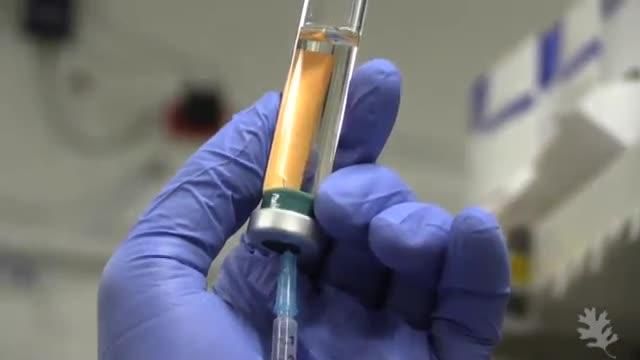
Q-Dots ORNL style.
VIDEO: A method to produce significant amounts of semiconducting nanoparticles for light-emitting displays, sensors, solar panels and biomedical applications has gained momentum with a demonstration by researchers at Oak Ridge National… view more
Continue reading “ORNL demonstrates large-scale technique to produce quantum dots” »
May 19, 2016
New device steps toward isolating single electrons for quantum computing
Posted by Karen Hurst in categories: computing, particle physics, quantum physics
Finally, some well deserved recogonition to Argonne Natl. Labs in their efforts on QC with the Univ. Of Chicago.
If biochemists had access to a quantum computer, they could perfectly simulate the properties of new molecules to develop novel drugs in ways that would take the fastest existing computers decades.
Electrons represent an ideal quantum bit, with a “spin” that when pointing up can represent a 0 and down can represent a 1. Such bits are small—even smaller than an atom—and because they do not interact strongly, they can remain quantum for long periods. However, exploiting electrons as qubits also poses a challenge because they must be trapped and manipulated. Which is exactly what David Schuster, assistant professor of physics, and his collaborators at UChicago, Argonne National Laboratory and Yale University have done.
Continue reading “New device steps toward isolating single electrons for quantum computing” »
May 19, 2016
With Moore’s Law in doubt, eyes turn to quantum computing
Posted by Karen Hurst in categories: computing, quantum physics
Moore’s Law was already identified as a problem regardless of Quantum. And, the move to Quantum happened regardless of Moores Law and the excitment around QC was not the result of Moores Law limitations. Just like all things, we evolve to better level of maturity.
The chip industry is giving another sign that Moore’s Law is coming to an end, but IBM is offering a glimpse at what might be computing’s future.
Industry experts from around the world who have been working together for years for forecast technology advances in the tech industry are throwing in the towel.
Continue reading “With Moore’s Law in doubt, eyes turn to quantum computing” »
May 19, 2016
This college student 3D printed his own plastic braces for $60 — and they actually fixed his teeth
Posted by Karen Hurst in categories: 3D printing, education, health
Ever dream of becoming a dentist? Or, have family members needing new dentures? Or, know that one person who would look good if they only had some teeth. This 3D Printer is your answer.
An undergraduate at New Jersey Institute of Technology made his own plastic braces using a 3D printer, $60 of materials, and a healthy dose of ingenuity — and they actually worked.
Amos Dudley had braces in middle school, but he didn’t wear a retainer like he was supposed to, so his teeth slowly shifted back.
May 19, 2016
Google has patented a self-driving car that will glue people to the hood if you crash into them
Posted by Karen Hurst in categories: robotics/AI, transportation
Hmmm, no thanks.
The glue would be covered by an outer layer that peels away during an accident.
